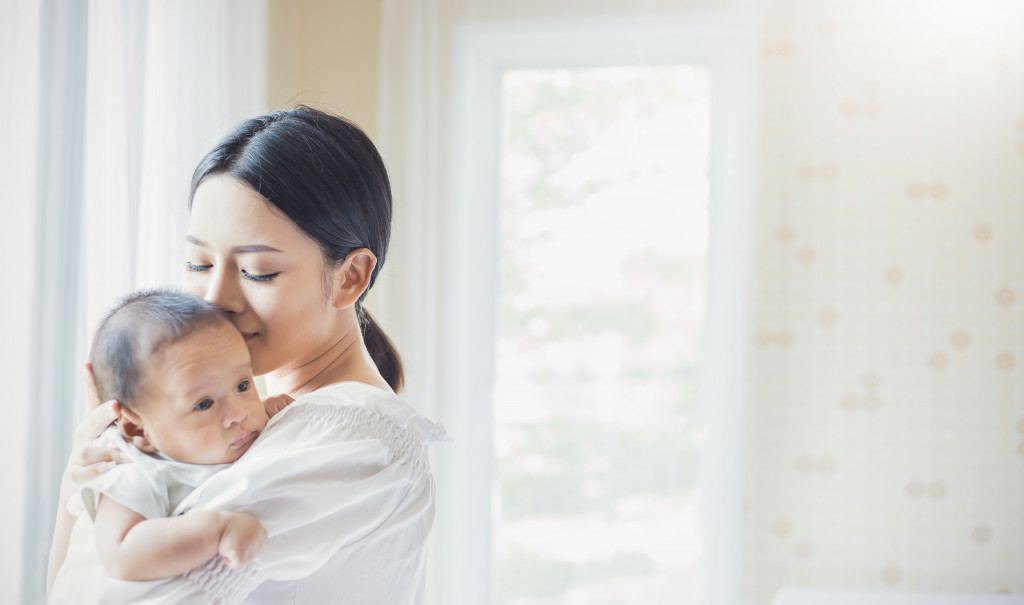In 2020, there were 3,613,647 births in the United States. The birth rate was 11 per 1,000 population. Lastly, 56 births occurred per 1,000 women aged 15 to 44.
Becoming a mother is an incredible experience full of joy and love, but it can also be overwhelming and demanding. Unfortunately, many young mothers suffer from postpartum depression (PPD). It’s important to understand that PPD is very common and treatable. This article will discuss some steps you can take to cope with PPD and get the help you need.
Acknowledging Your Feelings
The first step in dealing with postpartum depression is understanding that your feelings are valid. Many new moms experience strong emotions like sadness, anxiety, guilt, and anger after giving birth. It’s important to remember that these feelings are normal and nothing to be ashamed of. Acknowledging these emotions is the first step in getting help.
It’s also important to realize that postpartum depression is not your fault. Having a baby can be overwhelming, and it’s easy to feel like you’re not doing enough or aren’t good enough. But it’s important to know that these feelings are common and nothing to be ashamed of. When you acknowledge your feelings, you can start to take action.
Take Care of Yourself
Taking care of yourself when you feel down after your baby is born is essential. This means eating well, getting enough sleep, and talking to someone if you need help. Taking care of yourself will help you feel better and get through this tough time.
It would help if you also tried to get back into your regular routine as soon as possible. This may mean getting out of the house, going for a walk, or doing something you enjoy. You can also look for a reliable cosmetic skin solution to enhance your appearance. The skin solution should be safe and provide an affordable solution to improve your appearance. This will help you feel better and give you a boost of confidence. You can also relax at a spa and get some me-time.
Enhancing your appearance can make you feel more confident and help reduce the negative feelings you may experience after giving birth. Taking care of yourself physically can help to increase your self-confidence and make it easier to cope with postpartum depression.

Getting Support
It’s not always easy to ask for help, but having a supportive network can make all the difference when it comes to coping with PPD. Talk to your partner, friends, or family members who have been through similar experiences. Support groups are also specifically designed for young mothers suffering from postpartum depression.
If you’re feeling overwhelmed or don’t know where to turn, consider speaking with a professional therapist or counselor who can provide guidance and support during this difficult time. With the right help, you’ll be able to find ways to manage and overcome your PPD.
Remember that you are not alone in this – there is help available. Don’t hesitate to reach out for the support you need. Whether it’s talking with a friend or getting professional help, reaching out can make all the difference in managing and overcoming your postpartum depression.
Seeking Treatment
It may be necessary to seek medical treatment for PPD, such as medication or counseling therapy, if your symptoms persist or worsen over time. In extreme cases, hospitalization may be recommended to ensure the safety of both mother and baby.
Remember that seeking help does not make you a failure—it makes you brave and proactive in taking care of yourself so that you can take better care of your baby. It is crucial to reach out for help, even if it feels uncomfortable or embarrassing. There are many resources available to you and your family, including support groups and online forums. You don’t have to go through this alone!
In addition, talking to other mothers who have experienced postpartum depression can help you feel more understood and less alone. Support from friends and family can also be invaluable during this time. Don’t be afraid to ask for help or advice – it could make a world of difference in your recovery.
Being a young mother presents its own set of challenges—especially when it comes to dealing with postpartum depression (PPD). From acknowledging your feelings and getting support from those around you to seeking out professional treatment if needed, there are steps you can take now toward managing PPD.
These steps can help you enjoy the joys of motherhood without feeling overwhelmed by its demands. Remember—you don’t have to face this alone! With the proper guidance and support system in place, it’s possible for young mothers suffering from PPD to get back on track toward happier days ahead.

